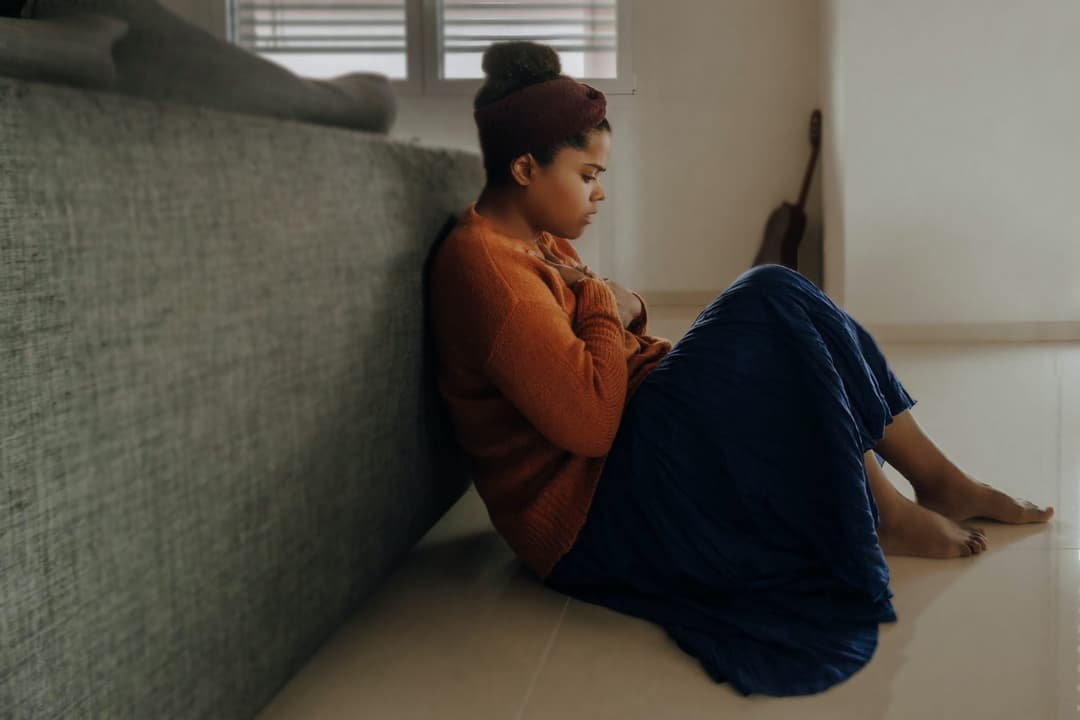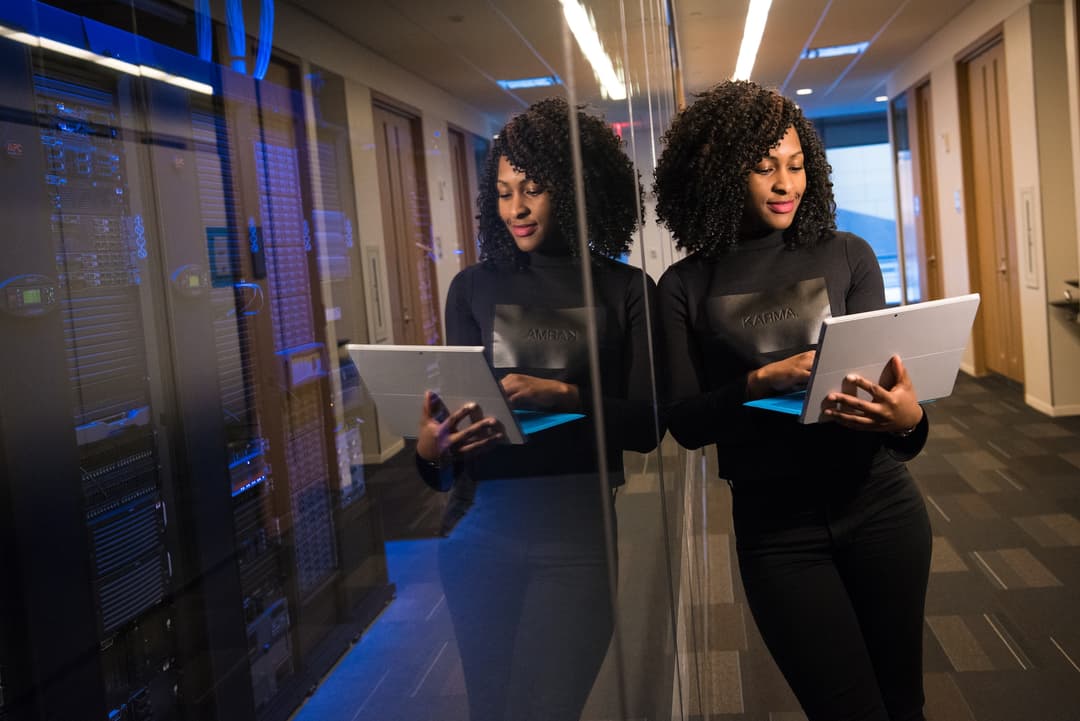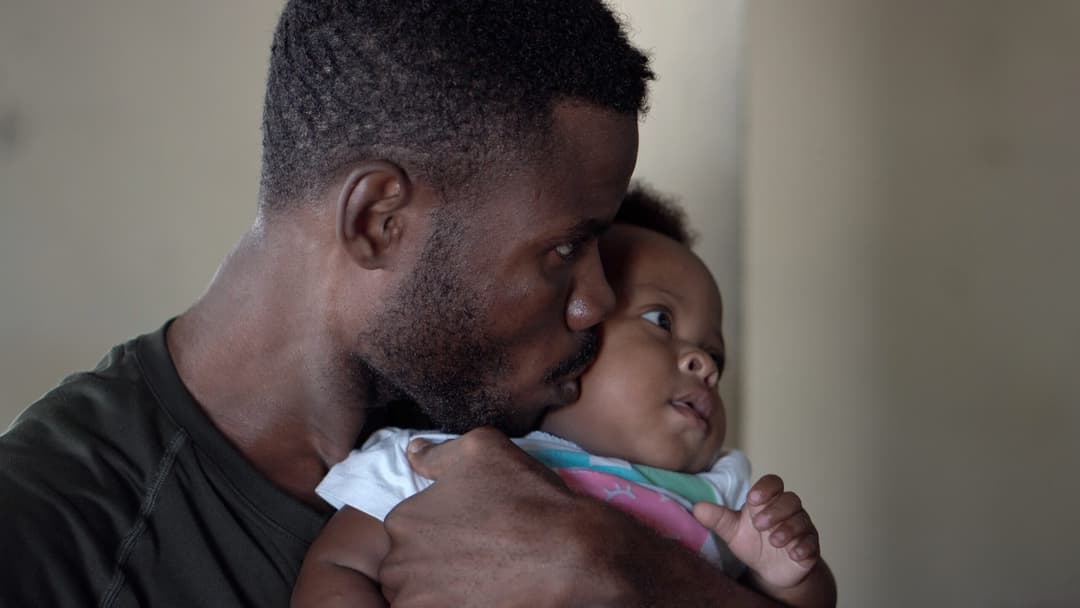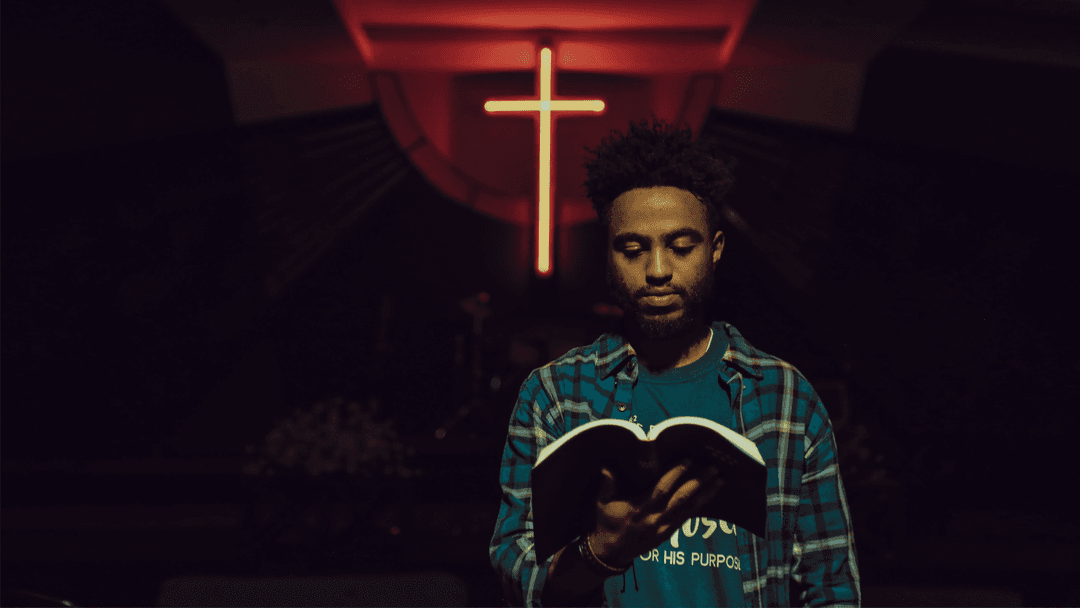Michael Harriot, Senior Writer at The Root
Apr 14, 2020
One Detroit Associate Producer Will Glover talks with The Root Senior Writer Michael Harriot about how the COVID-19 pandemic is exposing how social & economic disparities particularly among Black & Brown Americans impact the country as a whole.
TRANSCRIPT:
Will Glover Hey everyone, welcome to One Detroit. My name is Will Glover. I’m an associate producer for the team. And today I’m talking to Michael Harriot, who is a senior writer at The Root, which is an outlet that talks about black news, politics and opinions and culture. So, Michael Harriot, who’s also recently made headlines after writing an article about former presidential candidate Pete Buttigieg. Welcome. Thank you for talking to us.
Michael Harriot, Senior Writer, The Root Thank you for having me.
Will Glover So let’s just dive right into it. This is the COVID-19 pandemic is going on. There’s a lot of news flying around every day. And you wrote an article recently called “Can Coronavirus Cure White Supremacy”? And there are some things in that that you highlighted that I thought we could get into. one of the lines that you said was your reaction to this new crisis reveals that we have always been aware that our economy didn’t represent all Americans and was never intended to guarantee prosperity for all.
Michael Harriot, Senior Writer, The Root One of the greatest examples is some of the news that’s coming out today that black people are disproportionately being affected by coronavirus. And a lot of people are associating that with lifestyle because I think it’s kind of malpractice to make that point without saying why they’re affected. And there’s a lot of it is because of economic reasons. You know, a report from 2016 says black people are twice as likely to live in a zip code that doesn’t have a hospital or a primary care physician. That stems from the history of redlining, stems from how we segregated black neighborhoods throughout American history. You can look at it as you know, we know that black people have one tenth the wealth of white people for every dollar a white person has, a black person has a dime, and that affects medical care.
You know, when you talk about how COVID-19 affects black people, you have to realize that a lot of people can’t get tested because they don’t have the money to get tested. Black people are more likely to be uninsured. All these of our economic reasons why this pandemic is affecting black America at disproportionate rates.
Will Glover So that said, Detroit is a hotspot for COVID and in Michigan as a whole, black Americans make up 14 percent of the population account for 33 percent of the cases but 40 percent of deaths. And then you also have Asian-Americans who are victims to spikes in racism. And at the same time, you have some people who would say that now is not the time to bring up race or socioeconomics because we should be banding together. And I just would like to know, how do you respond to that? And what is the risk of not addressing these things while they’re happening?
Michael Harriot, Senior Writer, The Root Well, I think this virus specifically points to the inane stupidity of that argument. Right. Because when you look at it, you know, my argument has always been that, you know, racism doesn’t just affect black people. It affects, you know, the entire American population. And this is a good example, right. So when you talk about the American economy now, you know, if you if you go back to that article we talked about how legislators admitted that, well, when people are out of work, when people don’t have when businesses are struggling, you know, the economy struggles right? Which is what I’ve argued about black America. Right? When you disproportionately underfund our schools, when we had disproportionate black unemployment, it’s always been about twice as high as is unemployment. It affects the entire American economy. Now, you see this being argued with that crisis hits white America. But as it affects is why specifically to your question. Right. We can’t stamp out this disease if we don’t address the systematic racism in health care in America because if black people are getting hit at disproportionate rates, then it’s not stamped out, you know? If you’re on a bus with a black person, it might happen, or if you or your children attend school or if you work with a black person that has it, it affects the entire population. So that shows that, you know, we have to address race if we want to address this pandemic. We just can’t treat everyone equally because we know that does nothing. There’s never been anything in the history of America that is as hard to get as far as this testing is that cost as much as this testing and black people had equal access to. Right. This never happened. So we have to address those issues to address the COVID-19 Pandemic.
Will Glover Right. So as we witnessed federal and state government generate and distribute resources to struggling businesses, communities, families who’ve lost jobs and even freelance workers in some cases. Now that we’ve seen this, what are going to be the social ramifications in the future, knowing when people know that this is what our governments are capable of. This is what our tax dollars can do, how, what is the normal look like after that?
Michael Harriot, Senior Writer, The Root Right. I think, you know, we have to address the disparities by addressing these economic issues overall. So now we know that our government can come up with trillions of dollars out of out of the ether. So we can’t argue against things like reparations. Right. Like, you can’t say that it’s too expensive. When we just saw what America pulled out of nowhere. When we talk about universal health care, for instance, why again, I said that black people are disproportionately under and uninsured. You can’t argue that it would cost the American economy too much when we just saw what that lack of health insurance and what that lack of health care cost the American economy and the American people as a whole.
So a lot of these arguments why you talk about black businesses. You know, the argument has been you can’t disproportionately target black businesses to help them. And now we’re proving that it also helps the economy. If you want to help black people come out of poverty, you have to address black businesses. You have to give people, you know, they call it welfare. When they gave it to black people in the 90s, but they called it, you know, Farm Aid, they give it to Midwest farmers. They call it business opportunities when they give it to corporations. But now we see that that all integrates into creating a healthy economy. And now those arguments are null and void because we’ve seen that they not only have the resources, but are aware at what putting those resources in the right places can do for this country as a whole.
Will Glover So in a lot of your articles, you’re never short on providing historical context as well as, you know, the data to back that, you know, the points up. So I wonder, are there any points in American history you think might help us predict how all of this might actually play out or maybe how we could get to a better outcome?
Michael Harriot, Senior Writer, The Root The perfect a perfect example is the new deal, right? So after the 1929 stock market crash and the Great Depression that followed. We had to dig ourselves out of a similar, if not worse, economic hole. first thing we did is we created the Tax Act of 1935. They called it the soak the wealthy tax. So they taxed the highest margin of taxes was at 90 percent for anyone who made over half a million dollars. So they use those funds to create what we call now the American middle class. They created a federal minimum wage. They created what we call now Social Security. They created the Homeowners Loan Corporation that built what we know now as the suburbs. They mechanized farms. They gave white owned businesses funds to supplement their income. And now black people were excluded from the New Deal. You know that the New Deal was what created redlining. But it really created what we call the middle class for generations to come. Right. So those people who moved into those free houses or those of guaranteed who use guaranteed loans that were created for the suburbs, those people became the middle class that we know today. And those people now will tell you, some of them will tell you that, you know, their grandfathers and grandmothers raised themselves up by the bootstraps to work hard to get here. But we know that this this economy that we live in today, this Middle-Class, it came from taxing, you know, a progressive taxing where they the tax the wealthy and used it to supplement the middle class.
Now, over time. Those the wealthy corporations and the wealthy individuals manage to whittle away at those taxes until we get to where we are today, where the wealthy pay fewer taxes than the middle class. And you know, the top 5 percent of earners in America make more than the bottom 90 percent. So that’s what that’s what this corporatization of wealth has gotten us to. Right. But we have the opportunity now to create a new economy, a new middle class where black and brown people are included. Now we know the solution. We’ve just seen them saying, hey, if you’re are poor and you can’t make it, we’re going to give you money. We just seen that, hey, the only way our economy can be inclusive is to help businesses. We’ve just seen them say that we have to strengthen the release of the American economy to help the broad coalition of our society. And so we know how to do it. We have the opportunity to do it. We we’ve done it before. There should be nothing stopping us from using that historical example to build a new middle class that’s inclusive of all.
Will Glover So that said, who do you think the responsibility falls on? Because another thing that, you know, at least I’ve heard is that, you know, it’s not necessarily about race. It’s about where you live, how hard you worked. Like you’re saying the bootstrap example. So who bears the responsibility to, I guess, shepherd that new economy?
Michael Harriot, Senior Writer, The Root We all do. Again, this this this virus is a perfect example. And those examples, you know, of hard work. It reduces the example of American history to its simplest form. So we know that for most of our history, black people and brown people were excluded. So we can’t discount that when we were rebuilding. So whose responsibility is it to build this new society? the people who have historically enjoyed the resources and the privilege that whiteness affords. That the middle class has built off the black backs, not just the backs, not just the labor. But when black people were excluded from the New Deal, there was still using our tax money. that is an investment that we have put into America that we deserve to see some return on. And it is the responsibility of the people who enjoyed the capital that we lent them to build that middle class to return our investment to us.
Will Glover Right. So as this country goes through this pandemic, there are three questions that I was just curious as to what your response in particular would be. So what have you been most disappointed in? What has given you the most hope? And what was the thing that made you say, oh, yes, of course.
Michael Harriot, Senior Writer, The Root Right. So I guess the most disappointed is that, you know, our government still seems reluctant to do the things that we know are necessary to stop this from happening. Right. So you still have been disappointed in that politics and partisanship and racism still is playing a part even during a global pandemic or what they call war time. And the thing that I guess that gave me hope is that I do see America recognizing the solutions to the problems that we’ve been worrying about for decades, right. Like we accept now that we’re going to have to have some kind of universal healthcare. We accept now that we’re going to have to give some economic help to the middle and lower class. So those things because in a poverty, in a time of crisis, you know, it exposes what’s been wrong with, you know, this house that we’ve built for a long time. You know, we say, you know, you might you might be able to ignore your leaking roof for years. But when the storm comes and there’s a big hole in it, you think a man, we’ve got to fix this hole. Right. So that’s what’s giving me hope that America might be finally willing to fix that hole. And the thing that’s what was the third thing that surprised me.
Will Glover What have you seen throughout this pandemic that has made you say, oh, of course, that would happen? Or, yeah, of course, you know, someone would do or say something like that.
Michael Harriot, Senior Writer, The Root Right. So I think the thing that surprised me the least was that, oh, all the rich people and the celebrities seem to have access to the medical care they like. Everybody’s wondering how the cold Golden State Warriors team get tested and all the representatives get tested. And how did they end up with test and how did Tom Hanks get tested? And we you know, I can’t get a test. And so, of course, you’ve seen that economics and wealth affect everything else in society. Right. So it’s exposing that. And now everyone’s really up for this. They got more money, so they’ll be healthier than.
Will Glover All right. So. What do you think? Do you think that’s going to change the relationship between celebrity wealth, prosperity and privilege that a majority of Americans are going to have? You think it’s going to change? Majority of Americans perception?
Michael Harriot, Senior Writer, The Root I don’t know if it’ll change the perception as much as it’ll change our goals. Right. So for the longest time, I always use this phrase like, you know, a lot of people, especially poor white people who support like conservative policies they will say, you know, they’ve been led to believe that they are not losers, they are winners who haven’t won yet. And so this this crisis might get us to reflect and think about what winning looks like. Right.
So does winning look like becoming a millionaire or does winning look like being able to support my family in a time of crisis? Does it look like being healthy? Does it look like being able to access medical care when I’m sick? Does it look like being able to live in a community where my neighbors don’t have to worry about not affording their rent during one month of crisis? So that’s what winning looks like. And the people who thought they were excluded from all of the things that black and brown people faced with so many years, they realized, oh, I’m in that box, too. Right. That’s this that’s what we are realizing now, is that this ideology that helps those of privilege also hurts the vast majority of those who been working alongside that, those privileged people. Right. Like the poor white people. They are hurting just as much as black people. Right and now, they’re seeing all these policies that have been advocating for years. They don’t help me. And maybe that’s the thing that we’ll realize out of this pandemic.
Will Glover Well, then I would say that leads to, you know, one of my two last questions is what are the biggest lessons that you hope we take away? As you know, we get to, again, whatever that new normal is gonna look like.
Michael Harriot, Senior Writer, The Root Well, so the new normal, what I hope will look like is that we see now like it’s as clear as day that all these economic disparities, all of these racial disparities, all of these educational disparities, it is literally life and death. Right. It is not just some ethereal thing that we pontificate about on Twitter so that we talk about illness or social media or that is some indication of being woke. Now, it really is our lives. Like when you don’t when you live in a red light neighborhood, you might die because you don’t have access to medical care. When you work and earn a living that doesn’t offer you a living wage, you might die because you can afford to get tested. And it’s not just in this pandemic. It’s everyday life for a large group of people. So I hope that’s the lesson that we’ll learn.
Will Glover And lastly, what message do you have for black and brown people of America and America as a whole?
Michael Harriot, Senior Writer, The Root The message that I would say for black and brown people is like, this is hard. And but we’ve been through this before. Our hands are weathered by the you know, the work that we’ve done and our ancestors have done. And I and our mothers and our fathers have done. So, you know, this is our test for our generation. But we know the previous generations that came before us have passed and we can pass it to. And as for America as a whole.
My message for them is now you see how interconnected we all are. You can’t just isolate yourself. No man is an island because the person that is six feet away from you is intertwined in inextricably joined to you because we all share the air and the sunlight in this country and the policies that not only gave you what you have today, but they had to take it from someone. And the person that they took it from is breathing the same air you’re breathing.
Will Glover Wow. That was a very good way to put it. Michael Harriot, thank you so very much for taking the time out to talk to me today, and hopefully we’ll get to talk to you again soon.
Michael Harriot, Senior Writer, The Root Thank you.
Stay Connected
Subscribe to One Detroit’s YouTube Channel.
Catch the daily conversations on our website, Facebook, Twitter, and Instagram @detroitperforms
Related Posts
Leave a Reply
Your email address will not be published. Required fields are marked*




























